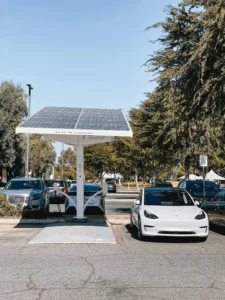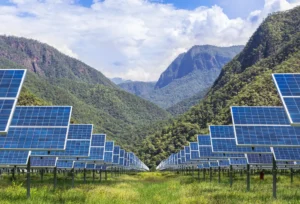Solar panels are a long-term investment that can save homeowners and businesses thousands of dollars in energy bills while reducing their carbon footprint. However, like any piece of equipment, solar panels require proper care to maintain peak efficiency and extend their lifespan. Without regular maintenance, even the most advanced solar system may lose efficiency, which means reduced energy production and slower return on investment.
In this article, we’ll explore top tips for maintaining your solar panels, ensuring they operate at maximum capacity and provide clean, renewable energy for many years to come.
Why Solar Panel Maintenance Matters
Solar panels are designed to be durable and require relatively low maintenance compared to other energy systems. Still, they are exposed to the elements 24/7, which means dirt, dust, leaves, bird droppings, and even weather conditions can affect their performance.
Regular solar panel maintenance helps:
- Maximize energy production.
- Prevent potential system failures.
- Protect your investment.
- Ensure warranty conditions remain valid.
When you think of solar maintenance, it’s not just about cleaning — it’s about keeping the entire system in good working condition.
1. Clean Your Solar Panels Regularly
One of the most effective ways to maintain your solar panels is regular cleaning. Dust, pollen, leaves, and bird droppings can block sunlight from reaching the solar cells. Even a thin layer of dirt can reduce efficiency by up to 20%.
Tips for cleaning solar panels:
- Use a soft sponge or a squeegee with a long handle.
- Rinse with clean water to remove dust.
- Avoid harsh chemicals that may damage the surface.
- If panels are on a high roof, hire a professional cleaning service for safety.
Ideally, clean your residential solar panels at least twice a year, but more frequent cleaning may be necessary if you live in a dusty area or near trees.
2. Monitor Energy Output
Every solar system comes with an inverter that displays the amount of electricity your panels produce. Monitoring your energy output regularly can help you detect issues early.
For example, if your average daily solar production suddenly drops, it may indicate dirt buildup, shading problems, or even technical issues with the inverter. Many modern systems also allow you to track performance through mobile apps.
Regular solar monitoring ensures your system is always performing at its best.
3. Schedule Professional Inspections
Even if you clean your panels regularly, it’s important to schedule a professional solar inspection at least once a year. A solar technician will:
- Check the wiring and connections for wear and tear.
- Inspect the mounting system for stability.
- Verify that the inverter is working properly.
- Look for any signs of shading or roof damage.
These inspections can prevent small issues from becoming costly repairs and help extend the lifespan of your solar investment.
4. Keep Panels Shaded-Free
Shading is one of the most common issues affecting solar panel efficiency. Even a small shadow from a tree branch, antenna, or neighboring building can drastically reduce the system’s output.
What to do:
- Trim nearby trees regularly.
- Avoid installing objects like satellite dishes close to solar panels.
- Consider micro-inverters or power optimizers, which minimize energy loss if shading occurs.
By keeping panels free from shade, you ensure they absorb maximum sunlight throughout the day.
5. Protect Against Extreme Weather
Solar panels are built to withstand harsh weather conditions, but extra precautions can help during extreme climates.
- Snow: In snowy regions, use a roof rake with a soft edge to gently remove snow. Avoid using hot water, as it may crack the glass.
- Storms: After heavy rains or storms, inspect panels for cracks, debris, or water pooling.
- Heat: High temperatures can reduce panel efficiency. Ensure proper ventilation under the panels to keep them cool.
Taking simple steps to protect panels from extreme weather will ensure they last for decades.
6. Check for Bird Nests and Debris
Birds often find the underside of solar panels an attractive spot to build nests. Unfortunately, nests can block airflow, increase heat, and cause fire hazards.
Prevention tips:
- Install bird mesh or critter guards around the edges of your panels.
- Inspect regularly for nests or small animals.
- Clean any debris buildup immediately.
Keeping the area around your solar panels clear is just as important as cleaning the panels themselves.
7. Maintain Records of Maintenance
Keeping a maintenance log is an underrated but powerful way to manage your solar investment. Record dates of cleaning, inspections, energy output levels, and any repairs performed.
This will help:
- Identify performance trends over time.
- Provide useful data for warranty claims.
- Simplify communication with service providers.
8. Protect the Inverter
The inverter is the heart of your solar energy system, converting direct current (DC) into usable alternating current (AC). Without it, your panels cannot deliver electricity to your home.
To protect your inverter:
- Keep it in a cool, shaded, and ventilated area.
- Inspect indicator lights regularly to ensure normal function.
- Call a technician immediately if you notice red or flashing error lights.
A well-maintained inverter ensures your solar panels operate at their peak performance.
9. Watch for Cracks or Damage
Although rare, solar panels can develop cracks due to hail, falling branches, or severe weather. Even small cracks can reduce efficiency and worsen over time.
Inspect your panels visually every few months or after extreme weather. If you notice cracks, contact a certified technician immediately for assessment and repairs.
10. Hire Certified Solar Maintenance Experts
While DIY cleaning and monitoring are important, professional solar maintenance ensures your system stays in optimal condition. Certified solar technicians have the training and tools to detect issues the average homeowner may miss.
Professional maintenance services include:
- Deep cleaning.
- Detailed electrical inspections.
- Performance testing.
- Preventive repairs.
Hiring experts once a year is an investment that ensures maximum return from your solar panels.
Conclusion
Maintaining your solar panels is crucial to ensure long-term efficiency, maximize savings, and protect your investment. By following these simple but effective tips — from regular cleaning and monitoring energy output to scheduling professional inspections and protecting against weather damage — you can keep your solar system running at peak performance for decades.
Remember, solar energy is not just about saving money; it’s about creating a sustainable future. With proper maintenance, your residential solar panels will continue to provide clean, renewable energy for your family and contribute to a greener planet.

